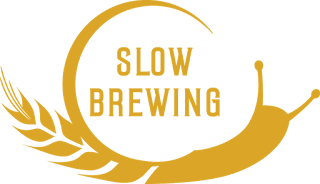Buy a bottle of beer in southern Germany, and you’ll often see a logo on a back label proclaiming ‘Slow Brewing’ and ‘Certified Excellence’. So what is Slow Brewing? And who certifies it?
A quick internet search reveals the Slow Brewing Institute, which exists to certify breweries with this status. It was founded in 2011 by Dr August Gresser, who heads up a scientific advisory board. The institute is a German non-profit organisation (an eingetragener Verein), which seems to be supported by a group of companies (‘supporting members’), none of which are breweries, mostly hop and malt producers.
To achieve the Slow Brewing Quality Seal, a brewer must undergo an annual audit from the Institute, and their beer must be tested monthly. One of the breweries involved, Brauerei Schützengarten in Switzerland, claims that this is the most stringent test in the entire brewing industry. The beer testing takes place at the Munich Technical University in Freising – so it is clearly in the hands of experts. Additionally, each brewer is assessed for corporate responsibility: ‘For example, certification criteria include evaluating the following: active corporate responsibility, various sustainability factors, measures to positively impact the work climate at the company, opportunities for education and continued training as well as the impact of the brewery on the environment.’
That corporate responsibility element is surely valuable. It means, ‘You can enjoy our beers with a good conscience.’ But it does complicate the offer. It is like including animal rights standards in organic certification – it’s nice, but it would be nicer to know exactly which virtues you are paying extra for.
Twenty-six breweries are currently certified by the Slow Brewing Institute, in Germany, Austria, Switzerland and Italy. But most are in Germany, raising the obvious question – so what about the Reinheitsgebot? The German beer purity law isn’t legally binding any more, but the concept is arguably even stronger as a motivator of purity and quality now that it operates as a gentlemen’s agreement between German breweries. The ‘Slow Brewing’ may be a clue here. Pressure fermentation, a relatively easy way to accelerate lager brewing, is not proscribed by the Reinheitsgebot, so there is one area where the Slow Brewing seal might imply higher quality. The Slow Brewing website also mentions the ‘conscious choice not to dilute our beers (no high gravity brewing).’ I’m surprised that is permitted in the beer purity law, and even if it is, I’m surprised anyone does it. Nevertheless, a guarantee here that there will be no dilution after fermentation.
So, the ‘Slow Brewing’ seal is an industry standard, awarded by an independent organisation, who claim the results of slow-paced production include more flavour and lower fusels. Given the dizzyingly high standards of almost all beer in the German-speaking world, it is a big ask to take the quality to a higher level. But the two beers I’m familiar with that have the Slow Brewing seal, Früh Kölsch and Spalter Helles, do indeed rise above the competition.


No comments:
Post a Comment